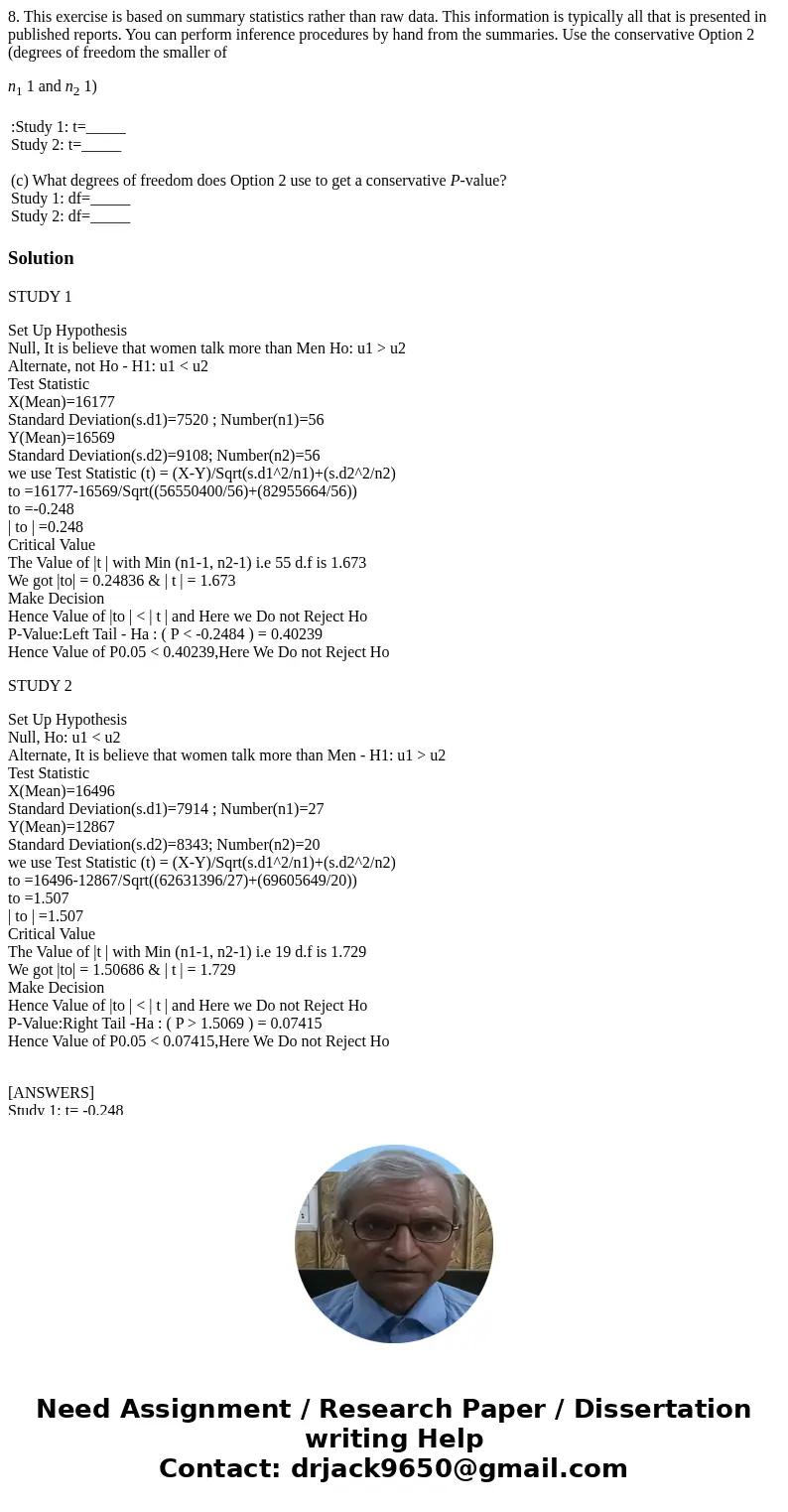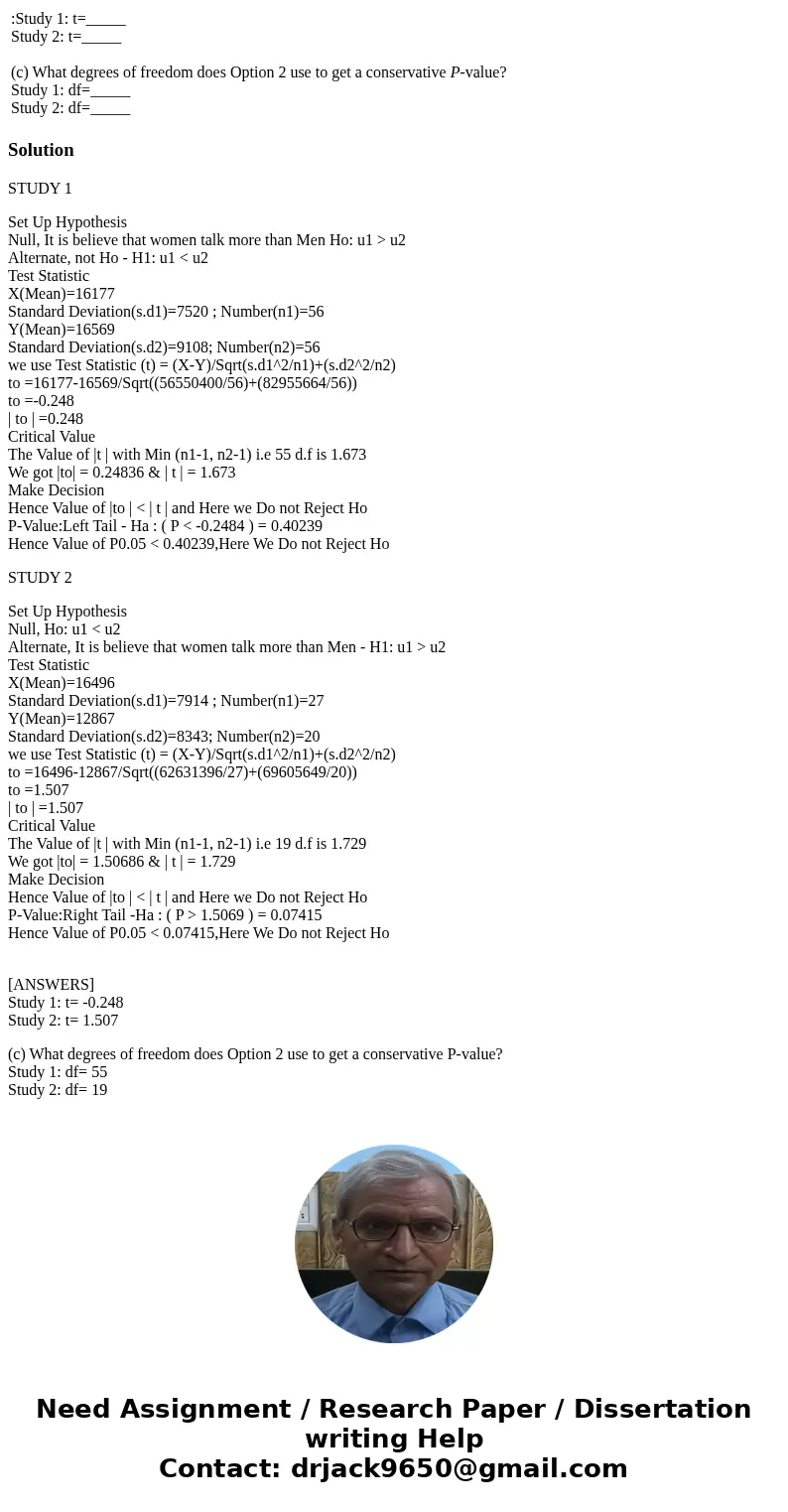8 This exercise is based on summary statistics rather than r
8. This exercise is based on summary statistics rather than raw data. This information is typically all that is presented in published reports. You can perform inference procedures by hand from the summaries. Use the conservative Option 2 (degrees of freedom the smaller of
n1 1 and n2 1)
| :Study 1: t=_____ Study 2: t=_____ (c) What degrees of freedom does Option 2 use to get a conservative P-value? Study 1: df=_____ Study 2: df=_____ |
Solution
STUDY 1
Set Up Hypothesis
Null, It is believe that women talk more than Men Ho: u1 > u2
Alternate, not Ho - H1: u1 < u2
Test Statistic
X(Mean)=16177
Standard Deviation(s.d1)=7520 ; Number(n1)=56
Y(Mean)=16569
Standard Deviation(s.d2)=9108; Number(n2)=56
we use Test Statistic (t) = (X-Y)/Sqrt(s.d1^2/n1)+(s.d2^2/n2)
to =16177-16569/Sqrt((56550400/56)+(82955664/56))
to =-0.248
| to | =0.248
Critical Value
The Value of |t | with Min (n1-1, n2-1) i.e 55 d.f is 1.673
We got |to| = 0.24836 & | t | = 1.673
Make Decision
Hence Value of |to | < | t | and Here we Do not Reject Ho
P-Value:Left Tail - Ha : ( P < -0.2484 ) = 0.40239
Hence Value of P0.05 < 0.40239,Here We Do not Reject Ho
STUDY 2
Set Up Hypothesis
Null, Ho: u1 < u2
Alternate, It is believe that women talk more than Men - H1: u1 > u2
Test Statistic
X(Mean)=16496
Standard Deviation(s.d1)=7914 ; Number(n1)=27
Y(Mean)=12867
Standard Deviation(s.d2)=8343; Number(n2)=20
we use Test Statistic (t) = (X-Y)/Sqrt(s.d1^2/n1)+(s.d2^2/n2)
to =16496-12867/Sqrt((62631396/27)+(69605649/20))
to =1.507
| to | =1.507
Critical Value
The Value of |t | with Min (n1-1, n2-1) i.e 19 d.f is 1.729
We got |to| = 1.50686 & | t | = 1.729
Make Decision
Hence Value of |to | < | t | and Here we Do not Reject Ho
P-Value:Right Tail -Ha : ( P > 1.5069 ) = 0.07415
Hence Value of P0.05 < 0.07415,Here We Do not Reject Ho
[ANSWERS]
Study 1: t= -0.248
Study 2: t= 1.507
(c) What degrees of freedom does Option 2 use to get a conservative P-value?
Study 1: df= 55
Study 2: df= 19


 Homework Sourse
Homework Sourse